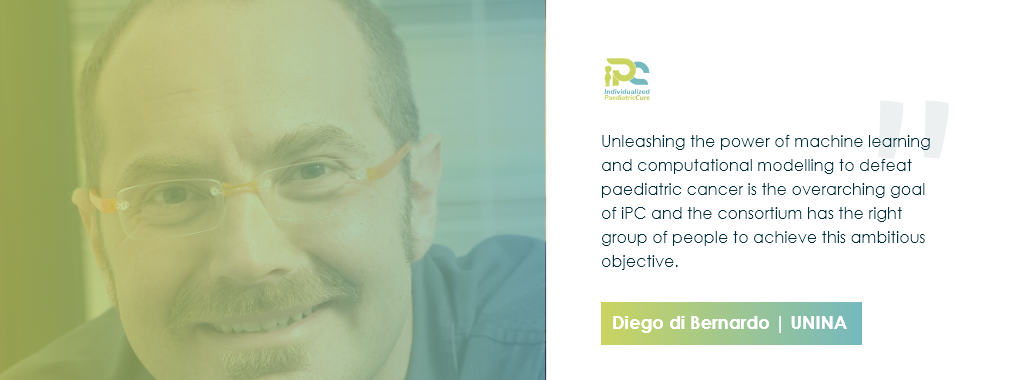Today in a talk with Diego di Bernardo about himself and the iPC H2020 project.
Introduce yourself and tell us a bit about your background.
I graduated with honours in Electronic Engineering at the University “Federico II” of Naples in January 1997. In 1998 I won a 3 year EU Marie Curie Fellowship to join the Ph.D. programme in Medical Physics at the University of Newcastle upon Tyne (UK) in Prof. Alan Murray’s laboratory. After obtaining the Ph.D. degree, I joined the Wellcome Trust Sanger Institute in Cambridge (United Kingdom) for one year (2001- 2002) as a PostDoc in Dr Tim Hubbard’s lab. From 2002 to 2003 I joined the Department of Biomedical Engineering of Boston University (USA) in Prof. Jim Collins’ lab. In 2003, I came back to Italy where I am an Associate Professor of Biomedical Engineering at the University of Naples “Federico II” and I also coordinate the Genomic Medicine program at the Telethon Institute of Genetics and Medicine (TIGEM), an Italian private Institute funded by one of the largest non-profit charities in Italy. At the present, my lab (http://dibernardo.tigem.it) consists of 11 people (2 Ph.D. students, 3 PostDocs, 2 Research Associates and 4 undergraduate students).
What is your title and/or role in the project?
I am an Associate Professor of BioEngineering at the University of Naples Federico II and the Coordinator of the Genomic Medicine Program at the Telethon Institute of Genetics and Medicine. My role in the project is mainly in WP8 acting as coordinator of this WP.
What are your contributions to the project? (Specify what deliverables and/or tasks you are responsible for)
We are leading Task 8.1 and the associated Deliverable D8.1. We are also involved in Task 8.3 in metabolic modelling and Task 8.5 to help with the DREAM competition. We will also contribute to WP2 (Task 2.5) to implement the software we will develop in D8.1 on the online platform, to WP5, we would like to contribute to Task 5.5.
What challenges can you foresee in the project?
The main challenges I foresee are the data availability and whether the information these contain are sufficient for the algorithms we will design to predict the optimal drug or drug combinations for the patient, and whether we will be able to thoroughly validate the results of the predictions.
